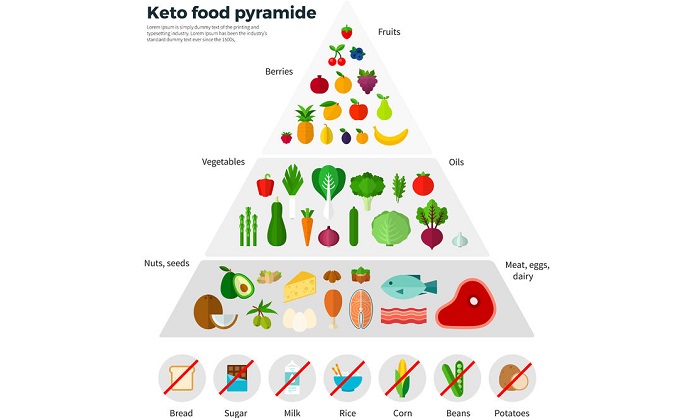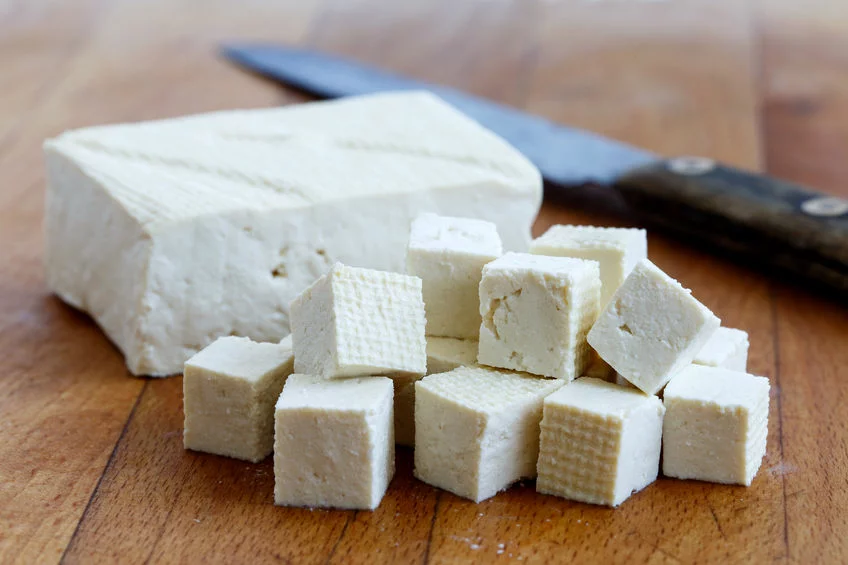The ketogenic diet is a diet that consists of consuming a low amount of carbohydrates and higher amounts of fats. This causes a complete shift in the body’s metabolism, which causes the body to break down fats as the main source of energy. The diet gets its name because the chemical reactions that produce energy from fat also produce ketones as a byproduct. The body is incredibly efficient and the brain uses these ketones as a source of energy.
Types Of Ketogenic Diets
There are different kinds of ketogenic diets which essentially result in the same goal but through different methods.
The standard ketogenic diet encourages the person to consume 75% fat, 20% protein, and a mere 5% carbohydrates. The high protein ketogenic diet includes the need for more protein so the distribution is 60% fat, 35% protein, and 5% carbohydrates.
Other forms of the diet allowed the person to include more carbohydrates in their diet. For example, the cyclical ketogenic diet alternates between 5 ketogenic days and 2 high carb days to replenish stored carbohydrates and reset the body for ketosis. The targeted ketogenic diet allows a person to add carbohydrates for more energy around workout sessions.
Why People Do This Diet
A number of scientific studies show that following a ketogenic diet produces health benefits. One of the most striking benefits is consistent weight loss. The stimulus to break down more fats in the body causes fat stores to be reduced which causes a person to lose body mass. The diet is also helpful because fatty meals improve the feeling of fullness compared to carbohydrate-rich meals.
Insulin levels and blood glucose levels stay consistent on a ketogenic diet. This is because there aren’t large spikes in blood glucose after carbohydrate-rich meals so there are no spikes in insulin which is a hormone that responds to increase in blood glucose levels. There are also no dips in blood glucose levels because there is no peak in insulin levels in the blood. Blood glucose levels are maintained by a process called gluconeogenesis where the body converts glycerol, one of the products of fat break down, into glucose. This can be a helpful process for people who are diabetic or pre-diabetic. This should be used with caution for people who suffer from type 1 diabetes and they should consult a physician before trying this diet.
Other benefits from this diet that have been recorded in scientific literature are:
- Decreased risk for developing heart disease because of decreased cholesterol
- Decreased risk for cancer
- Decreased risk of developing Alzheimer’s and Parkinson’s disease
- Reduced acne
- Reduction in the symptoms of polycystic ovarian syndrome (which is linked with insulin levels)
Foods To Eat And Avoid On The Ketogenic Diet
The best foods to cause the effects of ketosis are meat, fatty fish, eggs, high-fat dairy products – butter, cream, cheese and foods which contain healthy oils like nuts and avocados. It is also important to maintain a sufficient vegetable intake when conducting a ketogenic diet.
Foods to avoid include sugary foods and drinks including fruit juice. Fruit should also be minimized. Grains, starches, beans, and legumes are a complete no-no for a ketogenic diet. You should also watch out for hidden carbs in foods you would not suspect such as certain condiments or alcohol. For more keto hacks, check out this article.
Do you want to find an effective Keto treatment? Check out our top rated Keto products












